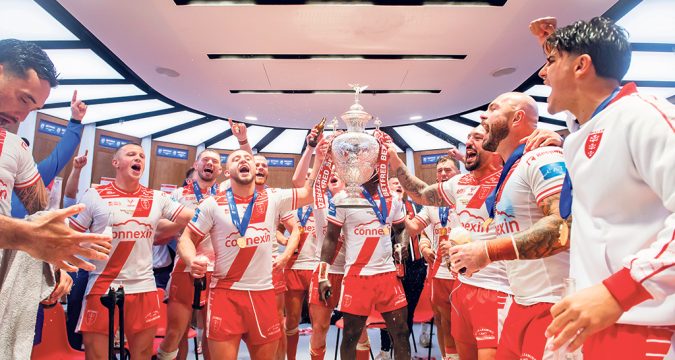 Hull KR left it to the last minute to clinch victory in a dramatic, low scoring Challenge Cup final at Wembley, but those around the club see it as just the beginning of a quest for more silverware in future, whilst Warrington Wolves must lick their wounds and prepare to bounce back.
THERE is something about Jared Waerea-Hargreaves and games at We
Hull KR left it to the last minute to clinch victory in a dramatic, low scoring Challenge Cup final at Wembley, but those around the club see it as just the beginning of a quest for more silverware in future, whilst Warrington Wolves must lick their wounds and prepare to bounce back.
THERE is something about Jared Waerea-Hargreaves and games at We Heroes, heartbreak, angst and why Hull KR’s Challenge Cup triumph is just the start
 Hull KR left it to the last minute to clinch victory in a dramatic, low scoring Challenge Cup final at Wembley, but those around the club see it as just the beginning of a quest for more silverware in future, whilst Warrington Wolves must lick their wounds and prepare to bounce back.
THERE is something about Jared Waerea-Hargreaves and games at We
Hull KR left it to the last minute to clinch victory in a dramatic, low scoring Challenge Cup final at Wembley, but those around the club see it as just the beginning of a quest for more silverware in future, whilst Warrington Wolves must lick their wounds and prepare to bounce back.
THERE is something about Jared Waerea-Hargreaves and games at We 